Maurice Broaddus's Blog, page 3
October 21, 2020
Re-Group – 10/21/20 (w/ Maurice Broaddus)
Join me and my co-host, Anna Tragesser, in a virtual community of creatives figuring out life and work beyond COVID.
Focus on your vision and creative career for 2020 and beyond while stretching your understanding of what’s possible in the creative economy.
Last week, we gathered with Maurice Broaddus to talk about longevity. After his entire life collapsed, author Maurice Broaddus rebuilt it to fuel his creativity, family and community. He’s thriving today (yes, even during a pandemic!) because he’s designed his future, and refuses to settle for anything less. Maurice will share his trusty tools for decision-making and future-building.
“Homework” assignments and prompts from this session:
1. Make your own Matrix for Opportunities
2. Write your own obituary.
3. Use these questions to journal about trusting yourself.
Which has more weight in my decision-making: my intellect or my intuition?How often do I follow my instincts?Do I regularly look to others for answers?What does my intuition feel like? Where do I feel it in my body?How would my life change if I trusted myself more deeply?ACTION: What decision is right in front of me?
October 20, 2020
Multiverse Convention 2020 (Virtual)
GOH interview
Science Fiction from the Margins Panel
Fantasy in the Real World
Horror as a Social Platform
Future Telling: Past, Present, (Afro)Futurism Podcast
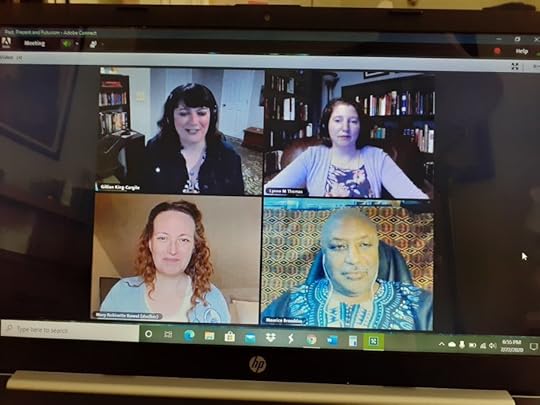
STEM Read Director Gillian King-Cargile (@gkingcargile) talks to experts in history and speculative fiction to hear how pandemics have shaped art and how this turbulent moment in world history is transforming the future of publishing and the genre. Speakers include Valerie Garver (Professor of History, Northern Illinois University), Lynne M. Thomas (Hugo Award Winning Publisher and Editor of Uncanny Magazine), Mary Robinette Kowal (Award Winning Author of the Lady Astronauts Series, President of the Board of the Science Fiction and Fantasy Writers of America), and Maurice Broaddus (Community Activist and Author of Pimp My Airship and The Usual Suspects).
September 18, 2020
[PATREON] SEPTEMBER ROUND UP
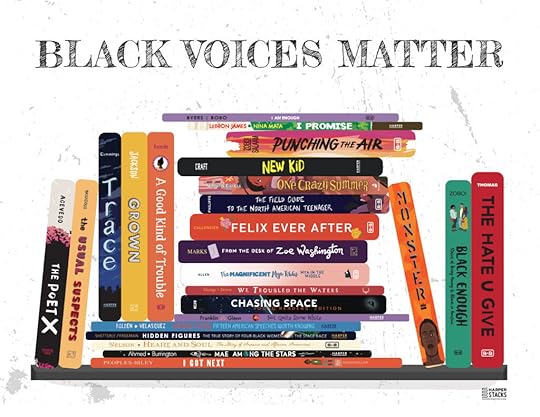
So … the late summer has been a bit of a rush.
In the last few weeks I have:
-had a project (Sorcerers) optioned for a television series by AMC
-was short-listed for the Eugene and Marilyn Glick Indiana Authors Award for Genre (for Pimp My Airship)
-The Usual Suspects came out in paperback
-had the Apex Magazine Kickstarter fund in a couple of hours, thus ensuring that I’m now an editor at Apex Magazine
-had my story “The Migration Suite: A Study in C Sharp Minor” picked up for a Year’s Best anthology
-done more (virtual) panels and readings than I can remember ever doing (not surprising since I rarely do panels or readings)
-won the Indiana Authors Award
Somewhere in there, I turned in my latest middle grade
novel, Unfadeable (whose rewrites I thought might do me in) and wrote two short
stories. I’m currently working on a new one as I bide my time waiting for the
editorial notes for the first in my sf space opera series, Sweep of Stars.
All while I’m settling back into in-person teaching at my school (though I gave a talk to the parents of the school over the summer).
With that in mind, I really appreciate the support to my Patreon, which helps me continue to be active in the community. With that in mind, this month we look at:
-[AWESOME PICS]: with apparently a discussion on my writing workspace
-[AWESOME BLOG]: some thoughts on building a platform
-[AWESOME PIMPING]: a look at a WIP for a secret project
-[AWESOME COMMUNITY]: a look at being the resident Afrofuturist at the Kheprw Institute
As always, I appreciate your support of my Patreon. Words cannot express how encouraging it is, especially during these dark times. I really appreciate it…and each and every one of you. Thank you!
I launched a Patreon because some friends wanted a way to help support the work that I do in the community. If you would like to support it (and receive updates on the work that’s being done) please feel free to join. Thank you so much!
Become a Patron!
September 16, 2020
“Pimp My Airship” Wins Indiana Author Award!
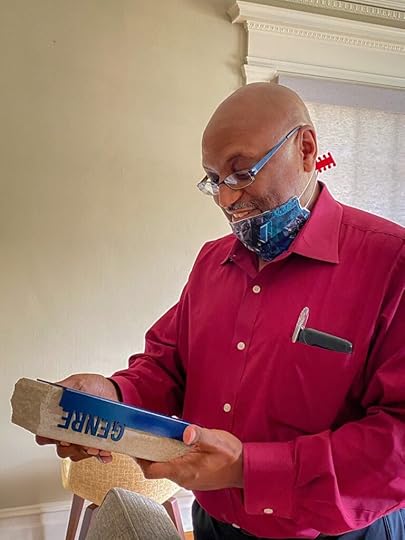
Meet Maurice Broaddus, winner of the 2020 Indiana Authors Award in the genre category for his book “Pimp My Airship.”
Indianapolis is recast as a steampunk, sci-fi landscape in Broaddus’ work where themes of power, racism and mass incarceration of people of color are explored. The fast-paced adventure through an alternative Indy follows an unlikely trio of Black compatriots into a battle for control of the nation and the soul of their people. Born in London, England, Broaddus has lived most of his life in Indianapolis. Describing himself an “accidental teacher” (at The Oaks Academy Middle School in Indianapolis), an “accidental librarian” (the school library manager as part of the Indianapolis Public Library Shared System) and a purposeful community organizer (resident Afrofuturist at the Kheprw Institute), Broaddus has seen his work appear in a variety of publications, including Lightspeed Magazine, Weird Tales, Asimov’s and Uncanny Magazine. He is the author, collaborator and editor of numerous novels and novellas.
This week we’re featuring each of the winners of the 2020 Indiana Authors Awards. You can learn more about them at www.indianaauthorsawards.org.
ALSO RELATED:
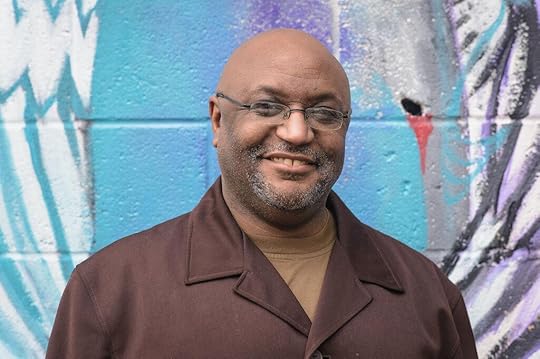
–For your reading list: A New York Times bestseller is among Indiana Authors Awards winners
–Broaddus Wins Indiana Authors Award
–Honors keep coming for Maurice Broaddus
–A LIST OF ALL THE STORIES TAKING PLACE IN THE “PIMP MY AIRSHIP” UNIVERSE
AFROFUTURE FRIDAY: A Conversation with Maurice Broaddus
Today Rasul Palmer interviews Maurice Broaddus, author of Pimp My Airship, and recent recipient of the Eugene and Marilyn Glick Indiana Authors Award for Genre. The topics range from the inspiration of Pimp My Airship, a look at Indiana history, and applications of Afrofuturism to community work.
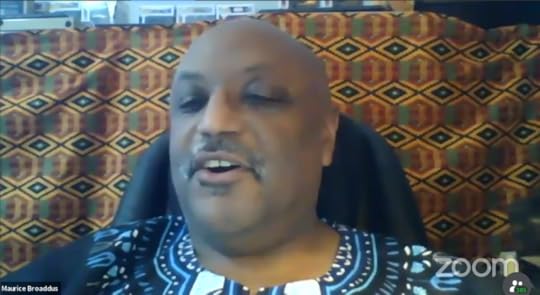
Conversation with Afrofuturist Maurice Broaddus
Conversation with Afrofuturist Maurice Broaddus
Posted by Kheprw Institute on Friday, September 11, 2020
ADDITIONAL RESOURCES:
–For your reading list: A New York Times bestseller is among Indiana Authors Awards winners
–Broaddus Wins Indiana Authors Award
–Honors keep coming for Maurice Broaddus
–A LIST OF ALL THE STORIES TAKING PLACE IN THE “PIMP MY AIRSHIP” UNIVERSE
Afrofuture Fridays brought to you by a partnership with folks we’d like to thank:


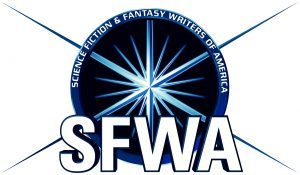
August 10, 2020
The 2020 Eugene and Marilyn Glick Indiana Authors Awards shortlists have been announced!

Featuring the works of lifelong Hoosiers, professors at Indiana colleges and universities, former residents and others, the shortlists feature stories (fact and fiction) about life in Indiana, about nature and about interesting people. At turns whimsical and serious, funny and haunting, the shortlist honorees address pressing topics such as race, immigration, teen pregnancy and suicide. There are also fairies and airships and voodoo. And yes, basketball.
In other words, they represent the incredible breadth and depth of talent, ideas and imagination that this place—our place—evokes in writers. We hope you pick up a copy (or two or ten) and continue to #ReadLocal. To purchase any of these books through local independent bookstores, visit our page on Bookshop.org. And, to read more about the authors and the books, visit IndianaAuthorsAwards.org.
Children’s Shortlist:
Crystal Allen, The Magnificent Mya Tibbs: Mya in the Middle
John David Anderson, Granted
Gabrielle Balkan, Book of Flight
Skila Brown, Clackety Track: Poems About Trains
Troy Cummings, Can I Be Your Dog?
Helen Frost, Hello, I’m Here!
Michael Homoya,
Shane Gibson and Gillian Harris, Wake Up, Woods
Phillip Hoose, Attucks! Oscar Robertson and the Basketball Team that Awakened a City
Young Adult Shortlist:
Sharon Biggs Waller, Girls on the Verge
Saundra Mitchell, All the Things We Do in the Dark
Poetry Shortlist:
Lindsey Alexander, Rodeo in Reverse
Callista Buchen, Look Look Look
Eugene Gloria, Sightseer in this Killing City
Debra Kang Dean, Totem: America
Kevin McKelvey, Dream Wilderness Poems
Shari Wagner, The Farm Wife’s Almanac
Genre Shortlist:
Maurice Broaddus, Pimp My Airship
Sofi Keren, Painted Over
Nate Powell, Come Again
Larry Sweazy, See Also Proof: A Marjorie Trumaine Mystery
Emerging Author Shortlist:
Katie Hesterman, A Round of Robins
Sofi Keren, Painted Over
Robin Lee Lovelace, Savonne, Not Vonny
Chantel Massey, Bursting at the Seams: A Collection of Poetry
Melissa Stephenson, Driven: A White-Knuckled Drive to Heartbreak and Back
Annie Sullivan, Tiger Queen
Nonfiction Shortlist:
Axton Betz-Hamilton, The Less People Know About Us: A Mystery of Betrayal, Family Secrets, and Stolen Identity
Robert Blaemire, Birch Bayh
Ross Gay, The Book of Delights
Nancy Kriplen, J. Irwin Miller
Bill Sullivan, Pleased to Meet Me: Genes, Germs, and the Curious Forces that Make Us Who We Are
Melissa Stephenson, Driven: A White-Knuckled Drive to Heartbreak and Back
Fiction Shortlist:
Brian Allen Carr, Opioid, Indiana
Bryan Furuness, Do Not Go On
Brian Leung, Ivy vs. Dogg: With a Cast of Thousands!
Michael Martone, The Moon Over Wapakoneta: Fictions and Science Fictions from Indiana and Beyond
Chris White, The Life List of Adrian Mandrick
Find out the winners of these categories
(as well as drama) on Sept. 1.The awards celebrate the best books written by Indiana authors in eight categories and published in the previous two years (2018 and 2019). We’ll also announce a Literary Champion (an individual or organization honored for its contributions to the literary community) on Sept. 2.
In the meantime, follow along with us on Facebook, Instagram and Twitter to learn more about the shortlisted books and authors.Learn more about the 2020 AwardsThe Eugene & Marilyn Indiana Authors Awards are powered by Indiana Humanities and generously funded by Glick Philanthropies.

August 9, 2020
The Shelf Stuff – “Meet the Author” Visual Diary
Over on theshelfstuff
This week in
our #ElevateBIPOCAuthors q&a series we’re
featuring @MauriceBroaddus, author of #TheUsualSuspects—a honest examination about
systemic profiling and what it means to break labels 
August 5, 2020
AMC Adapting Novella ‘Sorcerers’ From Maurice Broaddus, Otis Whitaker And Jim Mahfood Into Series
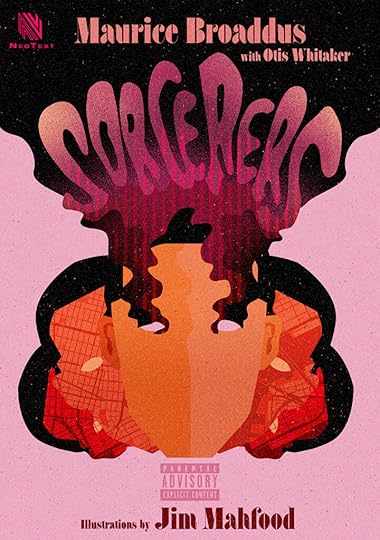
EXCLUSIVE: AMC has optioned the rights to Sorcerers, a novella by co-writers Maurice Broaddus and Otis Whitaker and featuring illustrations by internationally renowned artist Jim Mahfood, with plans to adapt it into a series.
The short story is a psychedelic urban fantasy about a 30-year-old man from Harlem who comes into his own as a hip hop-inspired sorcerer. It follows Malik Hutchins, the black sheep to one of the most successful families in Harlem. Malik couch-surfs with relatives, parties with his girlfriend, and ghostwrites rhymes for local rappers for a few bucks to finance his lifestyle—but when cocky Malik sells two warring rappers the same verse, he paints a target on his own back. Then on his deathbed, Malik’s beloved grandfather Pop-Pop reveals that Malik is a sorcerer, in the great tradition of African sorcery born on the plains of the rift valley before the beginning of time. Malik is thrown headlong into a quest that winds through the streets of Harlem, to the rural South, and places much farther beyond, places he’s only visited in dreams… Now it’s Malik’s turn to step up and take his place as wielder and guardian of an ancient magic passed down through generations in order to protect the family, the people of Harlem, and the world from the forces of dark magic connected to the worst aspects of American history and the fearful creatures it has unleashed.
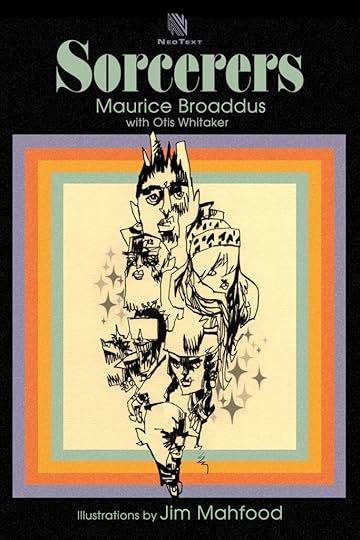
July 22, 2020
My Introductory Remarks to Bridge to Racial Unity Discussions
The Oaks Academy launched a discussion series based on “Be the Bridge.” This is a 12-week course with the first 4-week segment focusing on the history of racism/white supremacy in the US. They wanted me to give some opening remarks to set the tone for the discussion. Here’s what I had to say:
My
first day of working as a sub for the Oaks, Mrs. Dierlam introduced me to her first-grade
class. She asked me about the spelling of my last name, fascinated that it had
two D’s. I kinda froze and asked “do you really want to know?”
She
said yes, so I explained that in tracing my family tree, I only had to go back
three generations before I had to sift through receipts. It turned out that
there was a spelling error on a transfer of property order and just like that,
our one D family became a two D family.
I
get done explaining this and I’m standing in front of this class like “Hi kids,
welcome to the realities of chattel slavery … I’ll just see my way out.” But
Mrs. Dierlam doesn’t miss a beat and puts my story immediately into historical
context. Unafraid to have difficult conversations in the moment. That
willingness is what first impressed me about the Oaks.
I’ve
been having these sorts of conversation with a couple of friends of mine, one
whom I went to elementary school and the other I grew up in church with. They
reached out due to all of the uprising and racial strife. I thought it was telling
that they had to reach out to someone who they knew thirty years ago.
You
should probably know, I don’t always engage in these conversations. They
require me to open up old wounds in the hope that the listener will hear my
story, see my humanity, and perhaps learn. I’m not always up for that.
But
I made the exception because I am in relationship with them. It became the familiar
conversation. With my “friends” wanting to start from the place that they
weren’t even sure that systematic racism is a thing. So, I took the opportunity
to set a couple of parameters:
One,
we may not be ready to have a conversation about this. If you’re at the stage
where you are essentially questioning whether gravity is real to a scientist, I
probably don’t have the emotional bandwidth to get you there.
Two,
in the entirety of us knowing each other, you never understood that we live in
the same country experiencing its systems completely differently.
What do I mean by that?
The
only reason either of them knew me is because:
-First,
my mother essentially tricked the bank into loaning us money. Redlining was
still a thing. We were buying a house in a neighborhood on the westside where
black people didn’t live. But my mom did all her business through a white male
lawyer. When she went into sign the papers, with her lawyer in tow and toting
my newborn baby sister with her, the banker assumed her to be the nanny. She
still delights in remembering his face when her lawyer looked over the
paperwork, nodded with approval, and then slid the paperwork over to her.
-Secondly,
the school system I was enrolled in wanted to default me to their remedial
program. My mom fought and argued with them to have me tested. They didn’t want
to. Good luck arguing with my mom. When they relented and got the results back,
they quite reluctantly admitted me into their Accelerated Program. The only
black male in the class.
-Third,
my mother insisted that me and my brother go to church. So, we went to the one
within walking distance of our new house. One of only two black families
attending there.
I
grew up in that conservative Evangelical church from when I was in fourth grade
until about halfway through college. One of the big reasons why I left was over
issues of race.
While
I really liked our pastor because he was such a student of the Bible, there was
some questionable theology among the congregation. Besides the blue-eyed, blond
Jesus iconography, there was an undercurrent of “the curse of Ham” brand of
theology when it came to black people.
Your
teenage years is a time for trying to figure out your identity. Who you are.
Who you want to be. Church was supposed to be the place where you could ask
those kind of questions. But the answers very much felt like “you are a son of
God … but don’t date our daughters” because we weren’t meant to be “unequally
yoked.” When I started studying the work of Dr. Martin Luther King Jr. there
was immediate pushback because “you know he was a womanizer and a Communist.”
Which was when I first started studying Malcolm X. Malcolm X had a profound
impact on my growing worldview. My youngest son is even named for him. But at
this point I was labeled as “angry” by my church and left alone. Eventually I
had enough and quit the church. And white people. And joined the Nation of
Islam.
And
I did eventually find my way back to Jesus. But it took many years.
This
part of my story stunned my church friend (btw, turns out he’s the uncle of a
former staff member here. She loves the fact that I’ve been having these
conversations with him). But I reminded him that he was only shocked because
race was a conversation no one wanted to have. While we were studying the
Israelites great exodus, he spent more time trying to identify with Israel than
wrestling with the idea that his culture might be Egypt. Or how the story of
Israel’s exile might have special resonance with me: a people being transported
to a new land, forced to learn a new culture, and a new language in order to
navigate the dominant culture. When my friend asked me about what I meant by
that, my next words hurt him.
In
the thirty plus years we’ve known each other, you’ve never heard my authentic
voice.
From
the time I started in the new school and new church, that was when the lessons
of navigating white spaces were driven home. I had to act a certain way, speak
a certain way, if I wanted to get ahead. Get ahead meaning allowed entry and
the possibility to thrive in those spaces. The lessons so acutely learned, if a
white person is in the room, I automatically code-switch.
Redlining.
Code-switching. The public school system. He didn’t have to think about
navigating any of this. That’s the reality of the system for him. I’ve simply
learned to survive in it. The status quo serves him. It has never served me.
My
work at the Oaks is one of my three full time jobs. I’m also an Afrofuturist by
training (as a scientist and as a science fiction writer) and practice (as a
community organizer at the Kheprw Institute). I see these times brought about
by the twin pandemics of racial injustice and Covid-19 as an opportunity. To
see torn down all the institutions and practices that keep us in states of
inequality. This country was built on the backs of the free labor of black
people and reinforced those same people not having equal say and rights from
the beginning. Woven into the fabric of its systems, laws, and practices. Now
is an opportunity revealing where the cracks in the system are. Where it’s not
serving its citizens.
And,
most importantly, as an opportunity to have the kind of conversations that have
been decades in the making. Long overdue conversations. working with folks to
create something new and better.
Because
that’s literally my hope.
There’s
this quote that I love from the book God of the Oppressed (by James
Cone): “To hope in Jesus is to see the vision of his coming presence, and
thus one is required by hope itself to live as if the vision is already
realized in the present.” My work here at the Oaks, in the community, and
in my writing all springs from a place of future hope. I live in light of who I
was meant to be, who I will become, and join with God in reconciling the world
back to Him by living with intentionality toward the world we want to see.
That’s
my story. I can only speak for me and to my experiences. But thank you for
listening.



